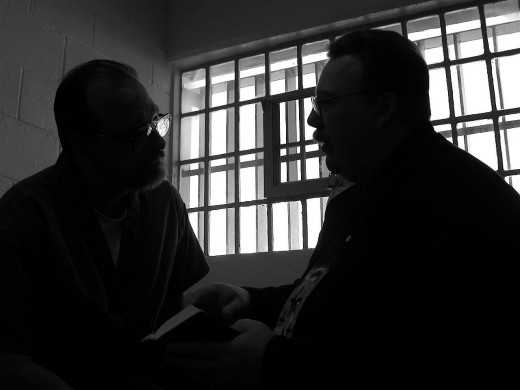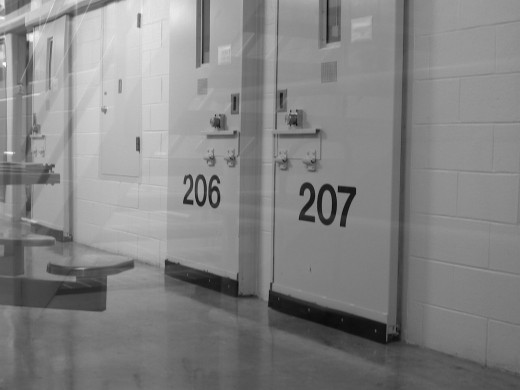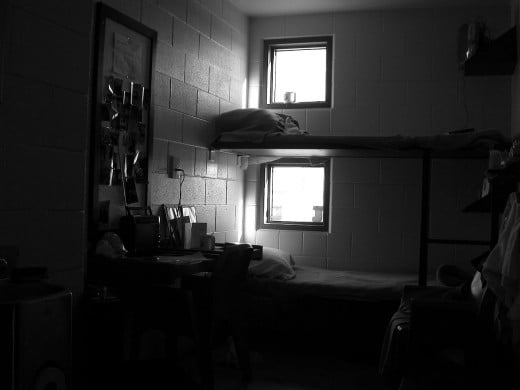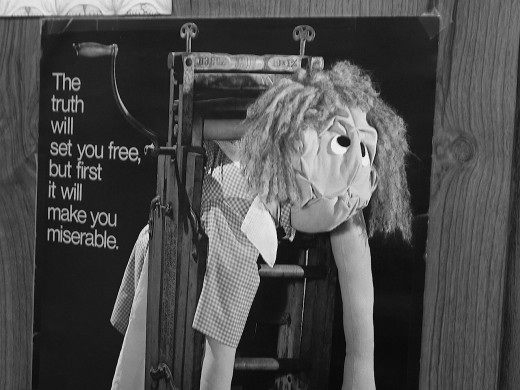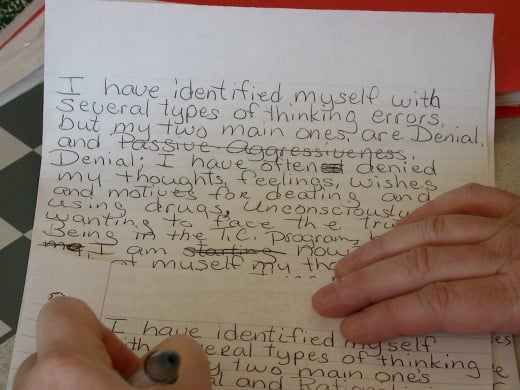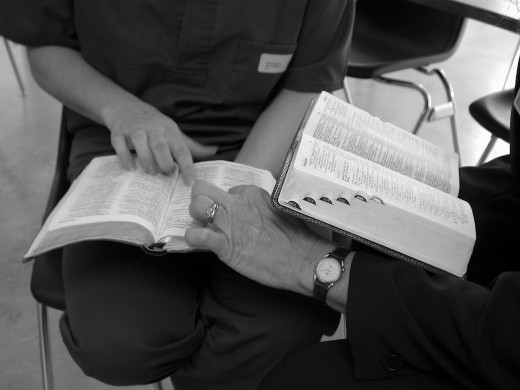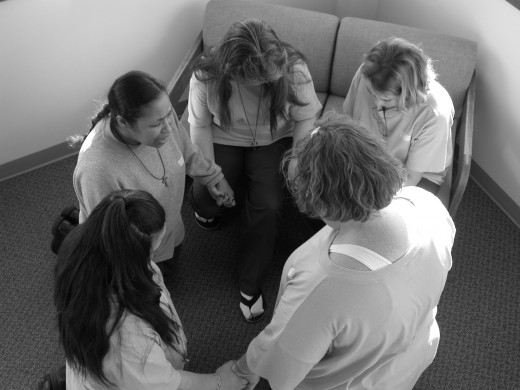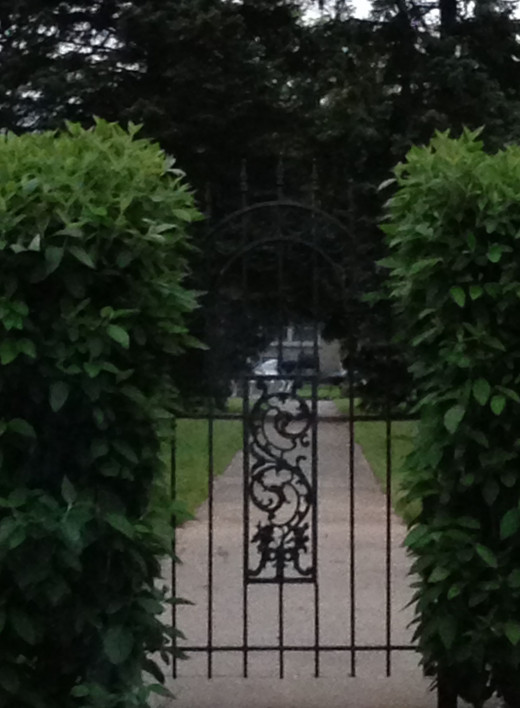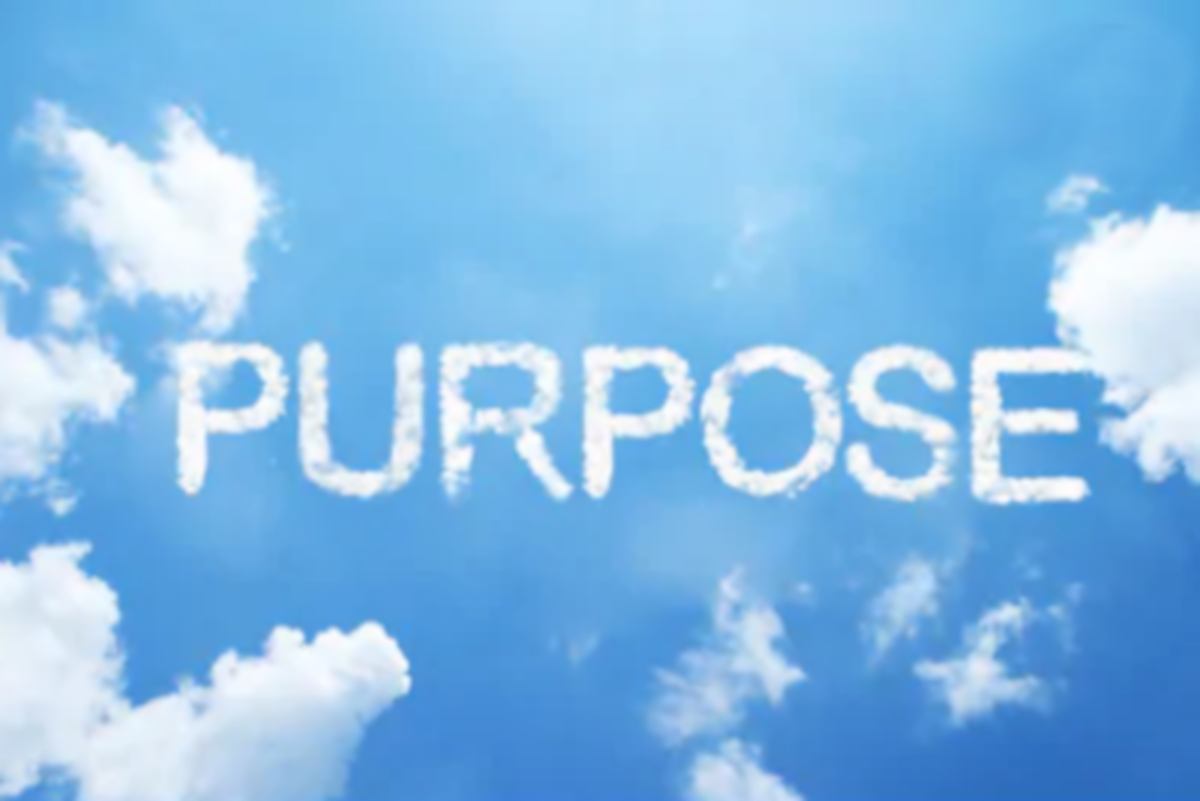Forgiveness: The Most Extravagant Gift
Are You Living In The Prison of Unforgiveness?
Click thumbnail to view full-size









A True Story of Grace
Every day I learn more about forgiveness. Years ago, when I read about a young infant girl (18 months old) at the time of her mother's murder, I could never have imagined that one day she would become part of my life, but her story impacted me deeply because of the circumstances. Later, she would become my greatest human example of forgiveness in the realm of earth,
Traumas like this are in the news daily. Working in the prison system, it amazed me how often peopIe I had read about or seen on television I would meet. It probably shouldn't have surprised me, but I was new to the culture and had much to learn.
I also realized that some criminals were not always as frightening as portrayed in the media, yet others were. Determining whether they were changed as a result of the incident, or sentencing, was difficult. Normally I did not ask about their past unless they chose to reveal it. My charge was to guide them spiritually while they were in our care.
I relied on discernment and compassion to provide guidance, rather than judging. Their sentence was adequate in most cases, and the reality that life in prison can break down a human soul completely was evidenced regularly.
I witnessed that for those who do not accept responsibility for their actions against other human beings are most often destined to the cycle of crime and incarceration. The system may fail, but God does not. I have been criticized for that approach. For those who ignore standards of law, and moral decency it is a surety in the end.
I also believe that God's grace to forgive extends to the directly offended party(ies). I have observed that when others take up an offense for them, the resulting anger produces extreme bitterness. That bitterness is compounded when the offense is rehearsed. I also do not judge people for that, each heart has its own sorrow.
I have witnessed events that prove that unforgiveness eventually opens doors for dakness to wreak havoc in the mind. Mulling over violent thoughts of revenge and retribution as a "right" are deadly. We have seen the results in our society as minds demand justice for wrongs done. It is a natural human tendency. I have also watched obstinately unforgiving people go on to take on the characteristics of the people they detest, while doing the same things themselves.
This true story is about a supernatural intervention in a horrendous situation.. I was at first apprehensive and skeptic at first. Having become fairly seasoned in the criminal justice system for some time, I watched carefully as it unfolded into a beautiful example of how grace can transcend injustice to mercy.
A young woman came to speak to me one afternoon. Her mother was murdered when she was less than 2 years old. It had happened shortly before I left California to move to Colorado. As she shared, the perpetrator literally tied her to her dying mother and left them in a remote place, presumably to die. He chose the location to hide the evidence of his rage-induced crime of passion. The child was discovered by a hiker, resued by law enforcement, and nursed back to physical health by suriviving family members.
Unfortunately, but understandably, she was subjected to her grandparent's accounts of the horrendous crime when she was of age, and had absorbed their corresponding outrage. She related to me that since she had no recollection of either her mother or the unthinkable crime, she was unable to internalize the severity of the details until she was in her early teens.
This parental grief and anger spilled over into a child unequipped to handle not only the gruesome details of the crime, but the accompanying emotions. She carried this anger deposit, and as she became an adult, accepted hatred as the only emotion appropriate to interpret the offense. The poison in her heart grew deeper and began to control her thinking and her life. Ironically, she eventually acted out that anger against someone else, and ended up in prison.
She came looking for answers about forgiveness, and received a piece of the puzzle, although I didn't know it at the time. Then came the miracle. The man who committed the crime who had been in prison for 20+ years came to an adjoining facility for a specialized doctor's appointment for cancer that ravaged his body
He was held in isolation at the Reception Center where she worked in the kitchen. Shocked to recognize his name on the food preparation list for the infirmary she wrote 3 words on the back of the slip that held his name. "I forgive you." and signed her name. She came to me, shaking, but not from anger, from excitement, commenting "he is here! I don't feel hatred any more!" Then she explained to me what had taken place.
Transported back to his facility the next day, He visited his chaplain, someone he rarely came in contact with since he didn't think himself worthy for God to forgive. His chaplain called me, and together after, receiving permission from the Deputy Director, asked the woman if she was interested in receiving a letter from the other offender, a one-time-only permissible exchange. She never hesitated in giving her consent.
The other chaplain relayed the approval and the offender responded promptly. He broke down weeping as he wrote a letter, not explaining or discussing the crime, but acknowledging his sorrow over what he had done and what he had taken from her.
He took full responsibility for the crime (stopping midway and confessing every detail to the chaplain, which became his own measure of sincerity). He then continued the letter, asking for her forgiveness and assuring her that her words of grace and compassion were beyond his comprehension. Then he suggested she go on to live a responsible good life in honor of her mother.
He disclosed that had been engaged to her at the time of the crime, and taken drugs, became out of control and committed this horrible act. This from the account given to the chaplain, but not in his words to her in the letter.) He gave her a piece of information she had never known before. He was her father, something her grandparents had never disclosed to her.
The letter was read (but no editing was necessary) by the Chaplain before it was forwarded to me for her. This inter-facility communication had only happened twice in the 14 years I was a chaplain. The other was when compassion allowed a phone call from a husband to his wife who was incarcerated as he was dying.
She was allowed to decide when she was ready to read it and visit with me for that purpose. She cried as she read the letter, clearly both feeling and comprehending the magnitude of his sorrow over all that she had lost. Then she said quietly, "doesn't he know I already forgave him? Didn't you say Jesus already died for all our sins, past, present and future? Please tell his chaplain, I meant it what I wrote him, but Jesus is really the one who can wash him clean of all the guilt and shame. Tell him to lay it down and accept forgiveness, because living with guilt like that is no way to live. Oh and can you tell my Dad I love him?"
In 10 minutes a lifetime of heartache was addressed and relationship restored. It was her choice. She made the choice to hear. He made the choice to own it every day for the rest of his life, something he later told me when I visited him in the hospital with the other chaplain.
Of course the psychiatrists wanted to counsel with her later, to convince her that she was unable to handle it without their help. Refusing their approach she stated, "Why do I need to analyze this? God did it, and He healed our hearts, so let's just leave it at the cross, okay?"
She was at peace, finally. So that's exactly what the chaplain relayed to him. He came back to the chaplain's office often to ask more about spiritual life. He asked for and then learned how to read his own bible and then asked if he could volunteer to work in the Chaplain's Library. He died suddenly of a heart attack 4 months later, before the cancer treatments were over.
She was released just shortly after his death, and I was told by others that she visited his grave site to bring closure. Then she implored her grandparents to do what she had done, forgive. She went on to college and continued her life helping others to handle grief.
Today, she is known for her extraordinary work in helping others affected by crime forgive. She understands that some will never forgive because they hold on to the false belief that punishment is a cure. She offers a solution, that love is the cure, for pretty much everything wrong in this world. She has been there, and she is effective. She chooses to stay anonymous in regard to the crime, because for her, it was buried with her mother and father.
Her grandparents chose not to forgive. They suggested she not share this story lest those who have had such horrible things happen to them unwittingly become victims once again. They are cynical, and untrusting, which is their right, and exercising it fully. I do not judge them, because like my own experience, no one should have to bury their children.
Life happens, we choose our response. That is why she can walk this road, offer hope, and help others get free. When I think about this woman, how can I make excuses for not letting go of petty disagreements, and the resulting aftermath? I am often at the same crossroad in my life, and I too, have to make the choice to completely let go of another's offence, with no thought of things ever being made "right" to my satisfaction.
Yes, for her, and for us, choosing to forgive is a most extravagant gift of grace.

